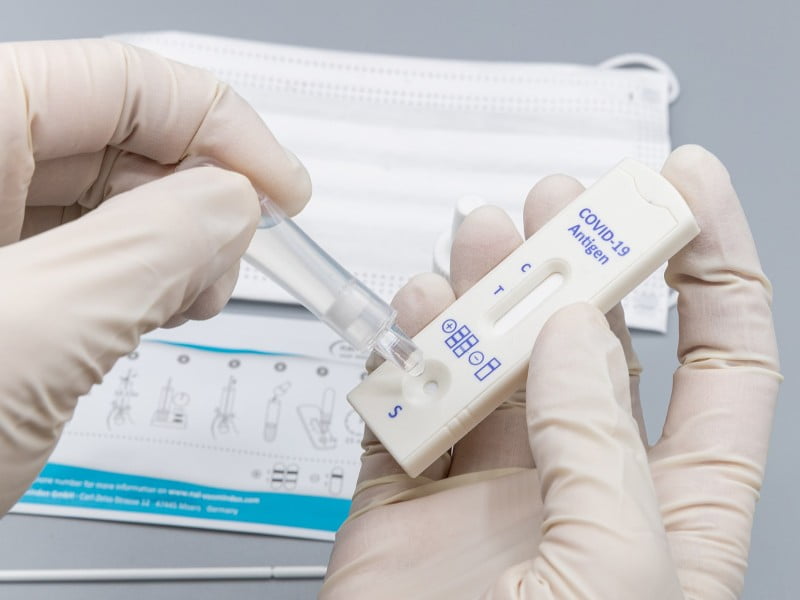A Victorian manufacturing facility meant to already be churning out a million Covid-19 rapid antigen tests per month is yet to get off the ground as Australian companies continue to wait for regulatory approvals.
A number of Australian companies are currently manufacturing rapid antigen tests (RATs) locally and sending them to overseas markets, while most tests available locally are made overseas.
These companies are still waiting on approval from the Therapeutic Goods Administration (TGA) for their RATs, with some waiting on full European clinical trials before being able to receive approval.

Innovation Scientific is currently the only Australian company to have received regulatory approval for its RAT, with a number of Australian companies approved to sponsor overseas-developed tests that have been approved by the TGA.
Earlier this year the Victorian government inked a deal with Lumos Diagnostics for the establishment of a RAT manufacturing facility in the state. The plan had been to produce RATs to be used locally early in the second quarter of 2022, with 1 million tests produced from April, 3 million a month after July and up to 50 million per month from October.
But this plan was contingent on Lumos Diagnostics receiving TGA approval for its CoviDx test, something which still hasn’t happened.
This means that despite plans to now be producing 1 million RATs monthly, no state government funding has been unlocked and the facility is yet to get off the ground.
“One of the requirements for this project to proceed is for Lumos to secure approval from the TGA for the over-the-counter use of its CoviDx product,” Lumos Diagnostics said in an update to the market.
“As a result, funding for the project has not yet commenced. However Lumos remains in continued dialogue with the Victorian state government to enable this project to proceed rapidly once the required conditions have been met.”
Lumos responded to a first round of questions from the TGA in mid-May. At the time of signing the deal with the state government in February, Lumos said it was confident it would receive TGA approval “imminently”.
The company first submitted an application for the rapid antigen test to the TGA in September last year.
Australian firm AnteoTech also submitted an application for its EuGenie Reader and SARS CoV-2 Ag Rapid Diagnostic Test in the same month.
Despite receiving regulatory approval for these products in Europe in May, AnteoTech has been asked for further information from the TGA and will now conduct a full clinical trial in Europe.
Queensland medtech firm Ellume is still producing a number of RATs and sending these to the US. The company has now applied to the TGA for approval to use these products in Australia, but is also yet to receive the go ahead.
Ellume developed the first over-the-counter RAT to receive regulatory approval in the US, and the company has since received significant funding from the US government to establish a manufacturing facility in Maryland. But it has still not been approved by the TGA for use in Australia.
The company is now collecting additional information from the US market to support its TGA application.
A spokesperson for the TGA said the agency is working with a number of Australian manufacturers on the approval process.
“We can confirm that the TGA has met with a number of Australian companies who are exploring the requirements for manufacturing of rapid antigen tests, and we will continue to work closely with them to provide the guidance and support required to meet Australian regulatory requirements,” the spokesperson told InnovationAus.com.
“All Covid-19 rapid antigen tests must meet the minimum requirements to be approved by the TGA. Each manufacturer is required to submit data that demonstrates their test meets the regulatory requirements, including minimum performance criteria, as well as providing information on labelling and instructions for use that can be easily understood by consumers.”
The previous Coalition government spent more than $60 million earlier this year buying RATs, signing contracts with Australian companies sponsoring overseas-developed tests, mostly from China.
In April, the Department of Health spent a further $25.5 million on rapid antigen tests from 2SAN, which is the local sponsor of a Chinese company manufacturing the tests.
Do you know more? Contact James Riley via Email.


Surely, there is something we don’t know. There must be a product shortcoming???